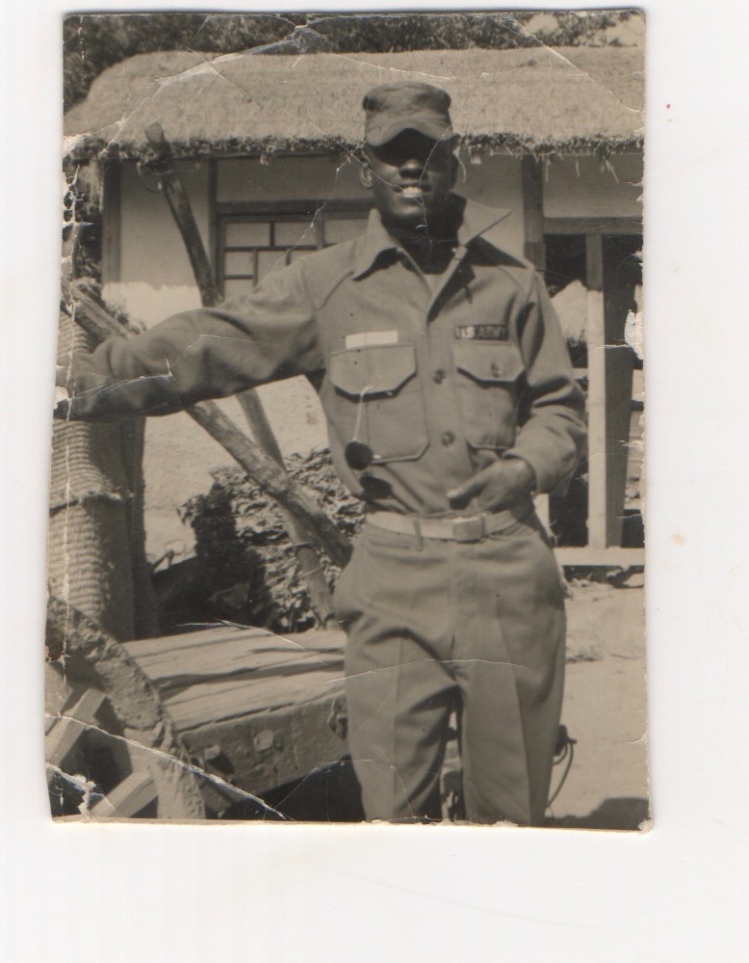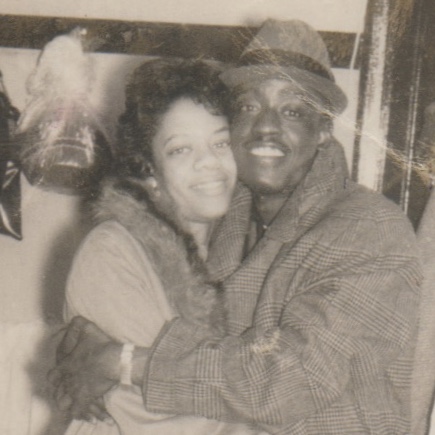Teaching Through a Storm

This is my Dad when he was in Korea as a mechanic during the Korean War in the 1950’s
What does it take to survive and thrive as a career teacher in public school in America? In this article I share my thoughts about what has kept me teaching after all these years despite the stormy challenges of our day to day most noble calling.
This week I took the time to read a few blogs written by public school teachers who have left the profession. These stories are heartbreaking and very disturbing. While I do not know the current percentage of teachers who are leaving the profession I do feel safe in saying that I understand their pain. Most of us enter the profession with great optimism, much enthusiasm and the bright eyed wonder of unwavering hope.
Along the way we encounter the stormy challenges of public school teaching and we must make difficult decisions. It happens to all of us. Outside of my first year teaching 25 years ago, last year was the most difficult year of teaching. I was truly in embattled. But nurtured by my faith in God, enveloped by the love of my family and friends and propelled by the lessons of my history I survived.
In this profession some years are especially emotionally draining. If you can take it…you can make it.
The truth is that we are engrossed in the most embattled profession in this nation. I’m reading through Dana Goldstein’s “The Teacher Wars,” a well written 175 year historical account of our profession I might add. I highly recommend this book to you if you are a teacher. Her book reveals that teachers have been embattled since the beginning. The book summary notes that:
‘The Teacher Wars upends the discussion about American education by bringing lessons of history to bear on the dilemmas we confront today.”
History is the best teacher that I know. I truly believe that understanding history is crucial to human survival. I have also come to the conclusion that the lessons of my history prepared me to teach through the storms of this profession in a very unique way.
My father was a proud Black man. He required that I understand how my personal history intersected American history. He was born after the depression in Sampson County, North Carolina when Jim Crow laws were in full effect. African American families of this period placed a particular value on education as they knew it was “the way up.” He was determine to instill as much wisdom as he possibly could into me. He took fatherhood seriously and often said, “You see I am your father, and if I don’t tell you this nobody will. And things like “Black people are the smartest people in the world.” He used post civil rights era television news to teach me his Black daughter the politics of life. The sting of southern bigotry still fresh in his mind could not deter his hope for me.
When I was little they (my parents) would tell us stories about the south. Editing the details according to our age, we came to realize that “down south” had been a terrible place. From time to time my mother would tell the story of two slave women who while preparing food were rushed to serve it and not given the chance to obtain rags to pick up the scorching hot pans. They had to pick up the pots with their bare hands and when they set the pots down their flesh was affixed to the pots.

My parents not long after they met.
Becoming educated was not a choice in my home.
And there were other stories too. The consistent and systematic demeaning of grown men in public as noted by my mother and veiled references to African American women’s sexual vulnerability when it came to white men. This past summer my Aunt Mavis who is my father’s sister told me that her grandfather sternly proclaimed that none of his girls would EVER work in the homes of whites. You must remember however that at that time this was one of few jobs available to African American women and many families were poor. From a modern point of view his proclamation seems to ring of pure fatherly pride, listening to it with a historical ear reveals much more.
All of this and much more form the backdrop to my life.
And when oppression is a tangible point of reference in your life you view life’s challenges differently and you approach life differently.
Tonight I am finishing Elie Wiesel’s book “Night.” As soon as I put this laptop down I will pick up his book and read the last 26 pages. I cannot explain to you the impact of his words. No human should ever have to endure his concentration camp experiences. But all through the book he is teaching. He is teaching us what it means to have nothing but your thoughts and to still be rich, he is teaching us that humans can and do horrible things that no one would believe and they sometimes get away with it…maybe, his life teaches the teacher inside me that the storms of life can be survived and have purpose. Painful they may be they have purpose.
Could it be that teaching through the storm is somehow tied to fulfilling the moral mandate placed upon our calling? Difficult as it may be to accept, we are living on the front lines of social transformation and economic tumult. When in this country has this ever been easy, safe or pretty? And why are we surprised when we have to fight? Have we been listening to the lessons of history?
Maybe Daddy was really showing me what this world truly looked like through the lens of his heart and challenging me never to forget that nothing could deter his hopes for me to survive it.
This is such a powerful piece. Your students are indeed fortunate to have you as their teacher and moral compass. I’d love to discuss Elie Wiesel with you- his life and works have certainly been an important part of my education. I’m telling a story of another great man this Sunday at DCIC’s Peace Story Concert at the UU Fellowship on South Randolph Ave. at 2pm.
LikeLike
Thank you Muriel and I am indeed honored to have met you.
LikeLike
Thank you cousin Jenny. Your Roots are indeed my roots. Our parents suffered so we would not have to. They taught us the meaning of self sufficiency. We are blessed to have such strong roots. God Bless you cousin. I Love you……
LikeLike
Thank you Dolly. You are right, we are Blessed.
LikeLike
Dear Jennifer, Thank you for reminding us of the values thst has kept our folks strong through so much . Family, truth,love and education. We have achieved so much but some how we have failed to pass it on . Thank you and the others like you who kept our hope alive.
LikeLike
Thank you for reminding me of soooo many stories shared by my grandmother. She was born in 1911 and graduated from college in 1933, the worse year of the depression. As a Black RN of that time, where do you go, what do you do?
You focus, pray and gather your courage. You push forward in the midst of seemingly unbearable trials. If she could do it, we can do it! Grandma always told me, I was born to turn this world upside-down & make it a better place.
I thank God for her!!!!
Rest in peace Myrtle Carvalho!
LikeLike